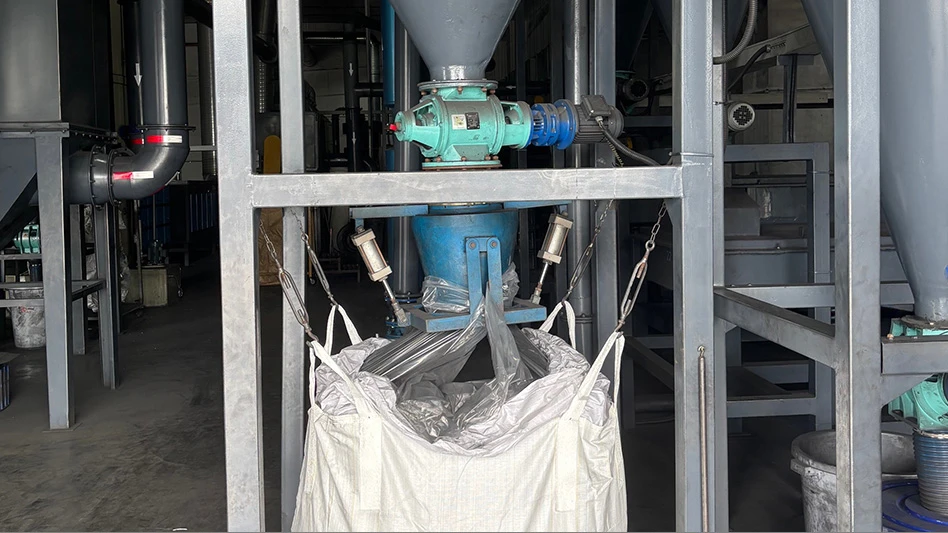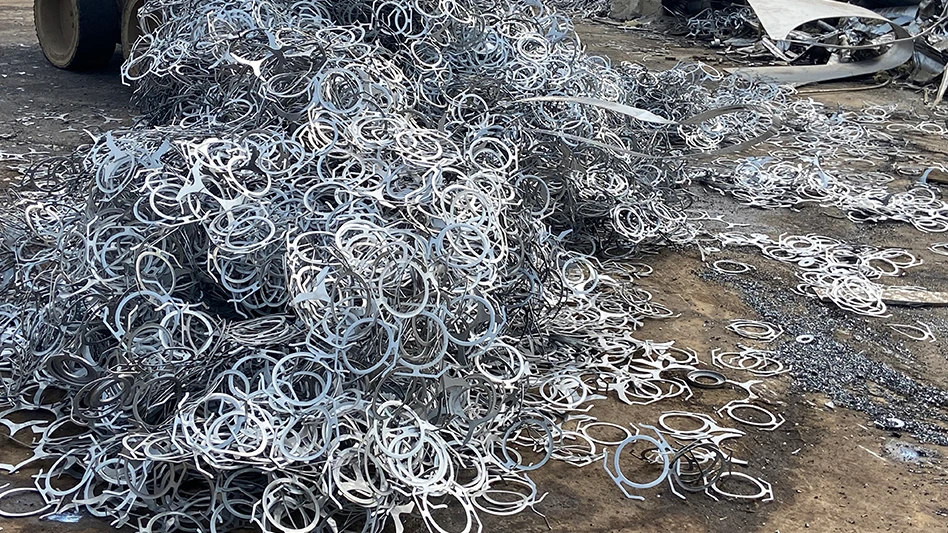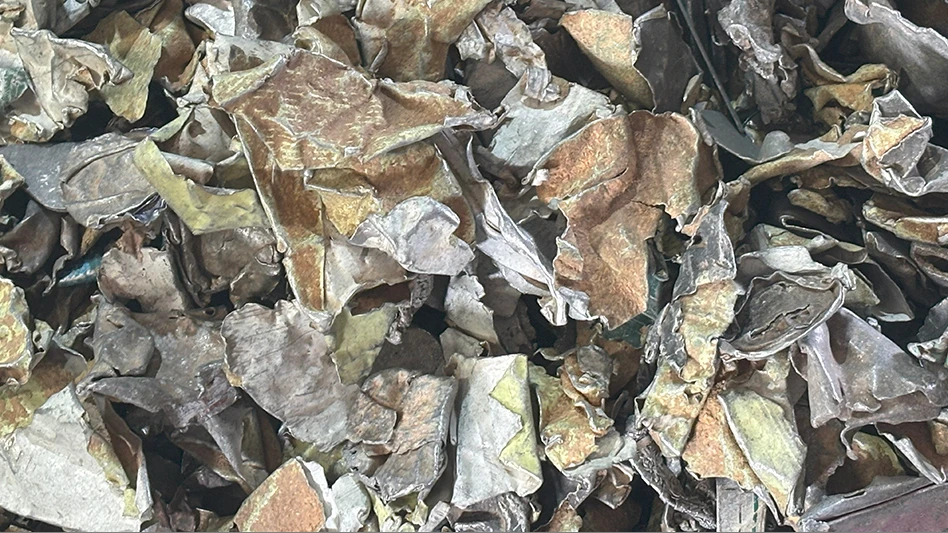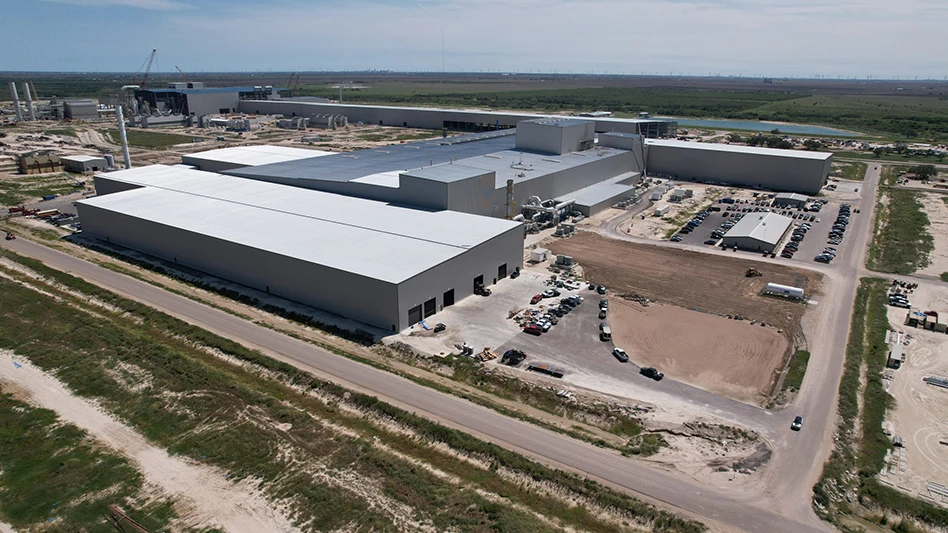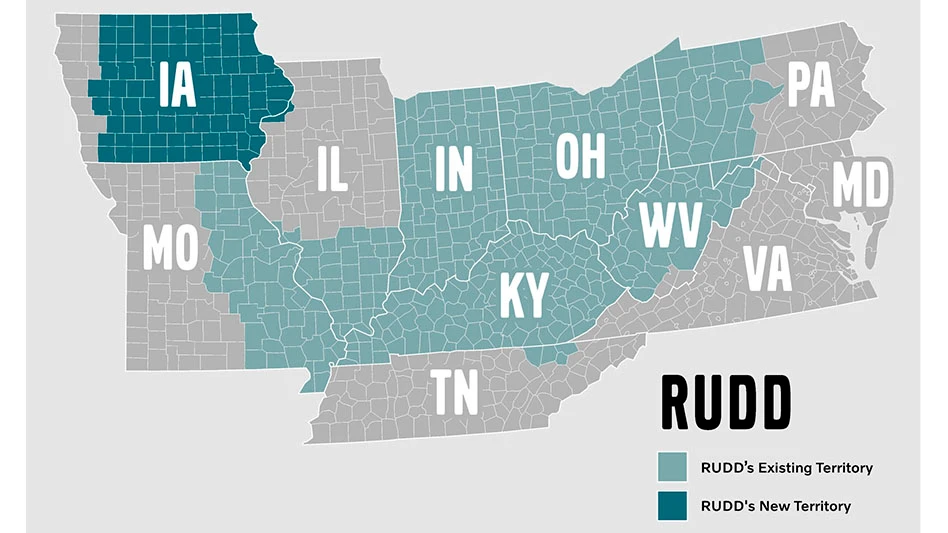
Recycling Today archives
A report from the London office of global consulting firm Bain & Co. concludes that more than 400 billion euros ($454 billion) in capital expenditures globally in the next 20-30 years could be needed for recycled-content polyolefins prepared via chemical recycling to compete on a cost basis with virgin plastics production in Europe.
“Despite impending mandates and ambitious corporate targets, chemical recycling in Europe remains nascent today mostly due to unattractive economics,” the firm says.
Its new report finds that cost parity with virgin plastics production could be achieved in 20-30 years for polyolefins produced via pyrolysis or chemical recycling. Polyolefins include polyethylene terephthalate (PET), polypropylene (PP), high-density polyethylene (HDPE) and low-density polyethylene (LDPE), commonly used in packaging applications.
The report does not go into depth regarding the market penetration or cost effectiveness of mechanical recycling methods being used in the PET, PP, HDPE or LDPE sectors.
Currently, according to Bain & Co., the chemical recycling production of polyolefins in Europe costs more than twice as much as producing virgin plastic.
“Market forces alone are insufficient to drive change, as customer demand is highly price sensitive and volumes are too limited to generate substantial cost benefits,” the firm says.
The study concludes that government policies may be needed to close the supply-demand gap and, in the meantime, “European plastic companies could start small and gradually increase recycled material blending requirements.”
Bain & Co. says country-level or regional blending mandates that increase chemical recycling market penetration by 1-2 percent annually could produce a more than 15 percent market share for chemically recycled materials by 2040.
“This pathway can deliver a smooth ramp-up with manageable capital requirements, healthy returns and minimal margin erosion or unintended substrate switching," Bain & Co. says, adding that longer term, “Accumulated operational experience will unlock cost efficiencies, eventually closing the gap with virgin plastics.”
The report says the plastics and recycling industries are developing technologies pertaining to discarded materials sorting and the pretreatment of waste designed to improve chemical recycling results.
“Our analysis shows that chemical recycling could become competitive with virgin production once cumulative global volume reaches 650 million metric tons of polyolefins recycled through pyrolysis, assuming a virgin price of 1,250 euros ($1,418) per metric ton and depending on gate fees and broader market conditions,” says Mark Porter, head of Bain & Co. global Chemicals practice.
“This would take at least 20 to 30 years, and by then recycled plastic would account for approximately 20 to 30 percent of total plastic demand."
Currently, about 170 million metric tons of polyolefins of all types (virgin and recycled) are produced annually, according to France-based Catalyse, Polymérisation, Procédés et Matériaux (CP2M).
Getting to cost parity with virgin producers in Europe would require cumulative global capital expenditures of at least $450 billion at a cumulative cost premium of approximately $300 billion, according to Bain & Co.
“That premium includes the sum of price premiums that would be paid by customers, regulatory mechanisms and margin investment by the value chain,” the firm says.
“Moving the needle will require a systems approach with regulatory support,” Porter adds. “Once scale reaches critical mass, chemical recycling can transition from a subsidy-reliant push to a demand-driven pull. That inflection point could fundamentally shift the economics, turning chemical recycling into a competitive, market-driven solution.”
Bain & Co. says its report outlines three strategies for plastics producers to become chemical recycling leaders, with one involving proactively creating offtake opportunities.
Companies investing in chemical recycling also “should actively engage with regulators on policy levers that are critical to their businesses and help to materialize them,” the firm says, while reframing public dialogue and perception around the role of plastics [when] managed responsibly.
Additionally, pyrolysis plant operators “must be willing to be flexible and rewrite their playbooks,” in part by experimenting with new business models, novel sourcing strategies and unconventional partnerships, according to Bain & Co.
Latest from Recycling Today
- Viably adds Maverick Equipment as dealer
- TDS partnership launches compostable tray pilot program at Texas elementary school
- Shapiro Metals appoints chief financial officer
- Orbis acquires thermoformer Robinson Industries
- PSRA, R3vira partner to expand EPS recycling in Mexico
- PRE tracks plastic recycling technologies in Europe
- Containerboard, boxboard production down in 2025
- VTE names chief commercial officer

